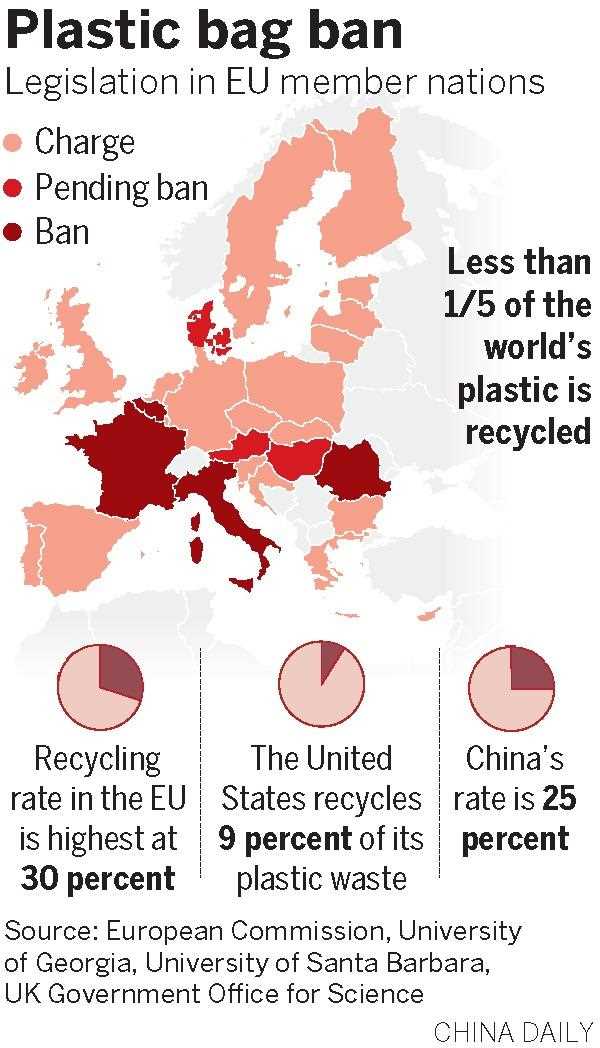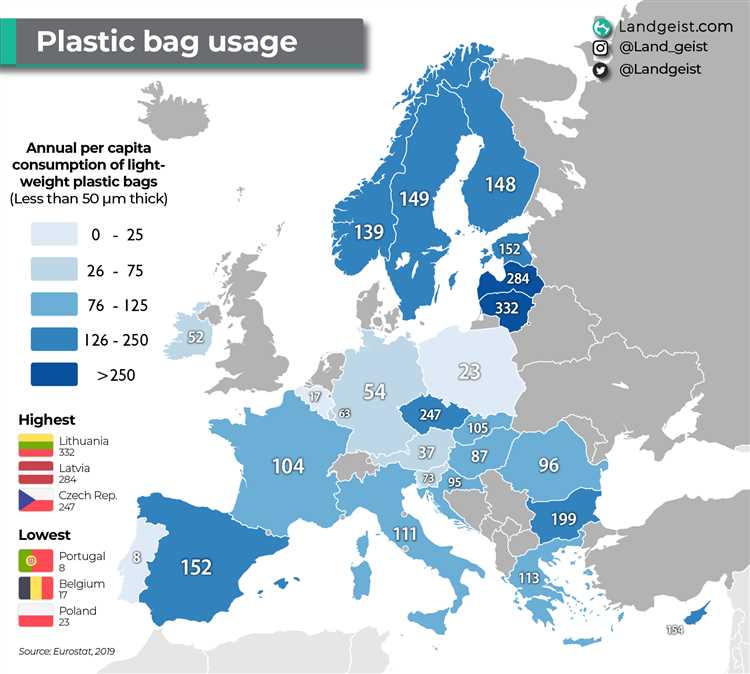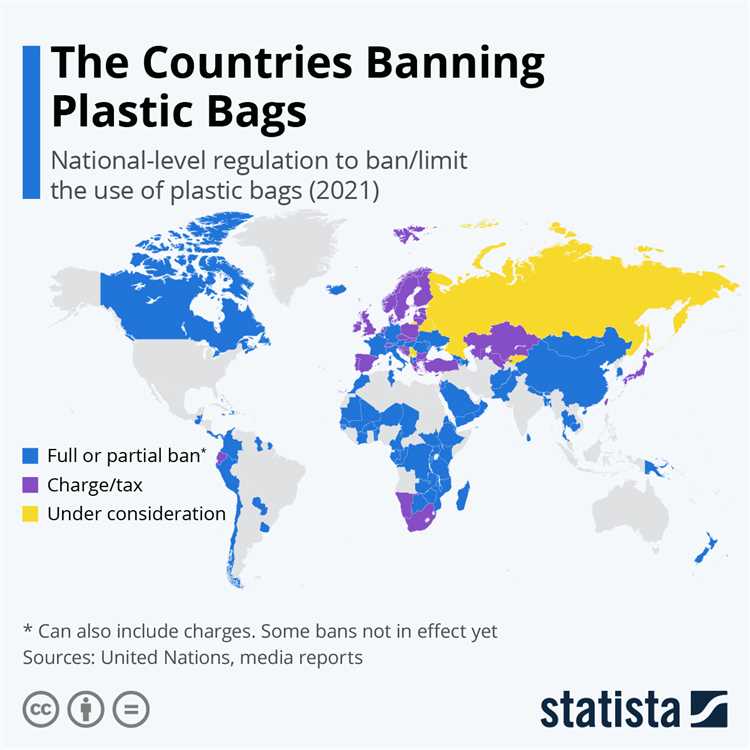Plastic bags have become an integral part of our daily lives, but their impact on the environment cannot be underestimated. In recent years, Europe has taken a leading role in addressing the issue of plastic bag consumption and waste management. With its stringent regulations, Europe has set an example for the rest of the world in reducing the use of plastic bags and promoting more sustainable alternatives.
One of the most notable measures taken by European countries is the implementation of plastic bag charges and bans. Several countries, such as Ireland, Denmark, and Germany, have introduced taxes or fees on plastic bags, which has resulted in a significant decrease in their use. These charges serve as a deterrent for consumers, encouraging them to opt for reusable bags or other eco-friendly alternatives.
Furthermore, many European countries have gone a step further by completely banning the use of plastic bags. This drastic measure not only reduces plastic bag waste but also promotes the adoption of reusable bags as a more sustainable option. Countries like France and Italy have already banned certain types of plastic bags, and others are following suit.
The benefits of these regulations are evident. By reducing the use of plastic bags, Europe has managed to decrease the amount of plastic waste entering landfills and oceans. This, in turn, has had a positive impact on the environment, as plastic bags are known to take hundreds of years to decompose. Additionally, the reduction in plastic bag consumption has led to a decrease in the consumption of fossil fuels used in their production, resulting in a significant reduction in greenhouse gas emissions.
Europe’s efforts in regulating plastic bag usage have not only helped to protect the environment but have also encouraged innovation in the development of sustainable packaging alternatives. Many European countries have seen a rise in the use of biodegradable or compostable bags as a greener alternative to traditional plastic bags. This has opened up new opportunities for businesses and industries to adopt more environmentally friendly practices.
In conclusion, Europe has taken a proactive approach to tackle the issue of plastic bag consumption and its detrimental impact on the environment. Through the implementation of charges and bans, Europe has successfully reduced plastic bag waste and promoted the use of sustainable alternatives. The benefits of these regulations extend beyond reducing waste to include a decrease in greenhouse gas emissions and the fostering of innovation in packaging solutions. Europe’s success serves as an inspiration for other regions to adopt similar measures and work towards a more sustainable future.
- Does Europe Use Plastic Bags?
- Evidence of Plastic Bag Regulations in Europe
- Positive Environmental Impact of Plastic Bag Regulations
- Reduction in Plastic Bag Waste in Europe
- Introduction of Plastic Bag Taxes
- Promotion of Reusable Bags
- undefined
- Does Europe have plastic bag regulations?
- What are the benefits of plastic bag regulations in Europe?
- Which European countries have the strictest plastic bag regulations?
- Do plastic bag regulations in Europe apply to all stores?
- How effective have plastic bag regulations been in Europe so far?
- Why is there a need for plastic bag regulations in Europe?
Does Europe Use Plastic Bags?

Plastic bags are widely used in Europe, but there has been a growing awareness of their negative impacts on the environment. Many European countries have implemented regulations and initiatives to reduce the use of plastic bags and promote more sustainable alternatives.
In recent years, several European countries have taken significant steps to tackle the issue of plastic bag usage. For example, in 2015, England introduced a 5p charge on single-use plastic bags, which resulted in a dramatic 85% reduction in their use within the first six months. Similarly, Ireland introduced a plastic bag tax in 2002, leading to a 90% decrease in plastic bag consumption.
In addition to these individual country initiatives, the European Union has also taken action to address the issue on a broader scale. In 2019, the EU adopted a directive that aims to reduce the consumption of lightweight plastic bags across member states. As per the directive, EU member states are required to limit the consumption of lightweight plastic bags to 90 per person per year by the end of 2019 and 40 by the end of 2025.
The efforts to reduce plastic bag usage in Europe have been driven by the recognition of the environmental harms caused by these bags. Plastic bags are not biodegradable and can persist in the environment for hundreds of years, contributing to pollution and posing a threat to wildlife. They also contribute to the global plastic waste problem, with millions of tons of plastic ending up in the oceans each year.
By implementing regulations and promoting reusable alternatives, Europe is making progress in addressing the issue of plastic bag usage. The reduction in plastic bag consumption has positive impacts on the environment, reducing pollution and helping to preserve natural ecosystems. However, there is still work to be done, as plastic bags continue to be used in certain contexts and regions. Continued efforts to raise awareness and promote sustainable alternatives are necessary to further reduce plastic bag usage in Europe.
Evidence of Plastic Bag Regulations in Europe

Plastic bag regulations have been implemented in various countries across Europe, demonstrating the commitment of these nations to reduce plastic waste and protect the environment.
One of the most successful examples of plastic bag regulations in Europe is found in Ireland. In 2002, Ireland introduced a plastic bag tax, which prompted a significant decrease in plastic bag usage. Before the tax, the average Irish citizen used about 328 plastic bags per year. After the tax was implemented, this number dropped to just 14 bags per year. This drastic reduction shows the effectiveness of plastic bag regulations in changing consumer behavior and encouraging the use of reusable bags.
Another country that has seen positive results from plastic bag regulations is Denmark. In 2003, Denmark implemented a ban on thin single-use plastic bags. Instead, consumers are encouraged to use reusable bags or pay for thicker, more durable plastic bags. As a result, the country has seen a 60-80% decrease in plastic bag consumption. The success of this ban highlights the importance of providing alternatives to single-use plastic bags and promoting sustainable behavior.
Other European countries, such as France, Italy, and the United Kingdom, have also implemented plastic bag regulations with varying degrees of success. France, for example, introduced a ban on single-use plastic bags in 2016, resulting in an estimated 17.5 billion fewer bags being used per year. Italy has implemented a similar ban, while the United Kingdom introduced a plastic bag tax in 2015, leading to a 85% reduction in plastic bag usage.
These examples of successful plastic bag regulations in Europe demonstrate the positive impact that such measures can have on reducing plastic waste and encouraging sustainable practices. By implementing taxes, bans, or alternative bag options, European countries have shown their commitment to protecting the environment and creating a more sustainable future.
Positive Environmental Impact of Plastic Bag Regulations
Plastic bag regulations in Europe have had a significant positive impact on the environment. By implementing restrictions on the use of plastic bags, European countries have been able to reduce plastic waste and protect ecosystems.
One of the main benefits of plastic bag regulations is the reduction in litter. Plastic bags are notorious for being lightweight and easily carried away by the wind, ending up in trees, rivers, and oceans. By limiting their use, European countries have seen a decrease in the amount of plastic bag litter, preserving the beauty of their landscapes and preventing harm to wildlife.
In addition to reducing litter, plastic bag regulations have also contributed to a decrease in plastic pollution. The majority of plastic bags are made from non-biodegradable materials, which means they can take hundreds of years to decompose. By encouraging the use of reusable bags or biodegradable alternatives, European countries have been able to minimize the long-term environmental impact of plastic pollution.
Another positive environmental impact of plastic bag regulations is the conservation of energy and resources. The production and disposal of plastic bags require significant amounts of crude oil and water. By reducing the demand for plastic bags, European countries have helped conserve these valuable resources, reducing the carbon footprint associated with their production and disposal.
Furthermore, plastic bag regulations have encouraged innovation in the development of alternative packaging solutions. European countries have witnessed the rise of eco-friendly options such as reusable bags made from recycled materials or biodegradable bags that break down more easily. These alternatives not only reduce plastic waste but also promote sustainable practices and the circular economy.
Overall, plastic bag regulations in Europe have had a positive environmental impact by reducing litter, plastic pollution, and the consumption of resources. These regulations serve as an important example of how proactive measures can have significant benefits for the environment and contribute to a more sustainable future.
Reduction in Plastic Bag Waste in Europe
Plastic bag waste has been a significant environmental issue in many parts of the world, including Europe. However, various regulations and initiatives have been implemented across Europe to address this problem and reduce the use of plastic bags.
Introduction of Plastic Bag Taxes

Many European countries have implemented plastic bag taxes as a way to discourage their use. These taxes require consumers to pay a small fee for each plastic bag they use at stores. The purpose of these taxes is to encourage individuals to bring their reusable bags when shopping and to reduce the overall demand for plastic bags.
The introduction of plastic bag taxes has had a significant impact on reducing plastic bag waste in Europe. For example, in Ireland, the implementation of a plastic bag tax in 2002 resulted in a 95% reduction in plastic bag usage within the first year. Many other European countries, including the United Kingdom, France, and Italy, have also experienced a significant decrease in plastic bag consumption after implementing similar taxes.
Promotion of Reusable Bags
Alongside plastic bag taxes, European countries have also focused on promoting the use of reusable bags. Many stores and supermarkets offer reusable bags for sale, often at affordable prices, to encourage customers to switch from single-use plastic bags to more durable and environmentally friendly alternatives.
In addition to store initiatives, governments and non-governmental organizations (NGOs) have launched public awareness campaigns to educate and inform the public about the benefits of using reusable bags. These campaigns often highlight the environmental impact of plastic bags and emphasize the importance of reducing plastic waste for the well-being of the planet.
As a result of these efforts, the use of reusable bags has increased across Europe, leading to a reduction in plastic bag waste. Consumers are now more conscious of their choices and are actively opting for reusable bags instead of disposable options.
In conclusion, the implementation of plastic bag taxes, along with the promotion of reusable bags, has significantly reduced plastic bag waste in Europe. These measures have played a crucial role in increasing public awareness about the environmental impact of plastic bags and encouraging individuals to adopt more sustainable alternatives.
undefined
Does Europe have plastic bag regulations?
Yes, Europe has implemented regulations to restrict the use of plastic bags. These regulations vary by country, but generally aim to reduce plastic waste and promote sustainable alternatives.
What are the benefits of plastic bag regulations in Europe?
Plastic bag regulations in Europe have several benefits. Firstly, they help reduce plastic waste and its harmful impact on the environment. Secondly, they encourage the use of reusable bags, which are more sustainable. Lastly, these regulations help raise awareness about the importance of responsible consumption and waste management.
Which European countries have the strictest plastic bag regulations?
Several European countries have strict plastic bag regulations. For example, Italy has banned the distribution and sale of non-biodegradable plastic bags. Similarly, France has implemented a ban on single-use plastic bags, and Germany has introduced mandatory fees for plastic bags.
Do plastic bag regulations in Europe apply to all stores?
Yes, plastic bag regulations in Europe generally apply to all stores, including supermarkets, convenience stores, and shops. The objective is to reduce plastic bag usage across all retail sectors and promote environmentally friendly alternatives.
How effective have plastic bag regulations been in Europe so far?
Plastic bag regulations in Europe have been effective in reducing plastic bag consumption. Since the implementation of these regulations, there has been a significant decrease in plastic bag usage in many European countries. This demonstrates the positive impact of such regulations in promoting sustainable practices.
Why is there a need for plastic bag regulations in Europe?
Plastic bag regulations are needed in Europe in order to reduce the harm caused by the excessive consumption of plastic bags. These bags are not biodegradable and contribute to pollution and waste. By implementing regulations, Europe aims to promote the use of more sustainable alternatives and reduce the negative environmental impact of plastic bags.